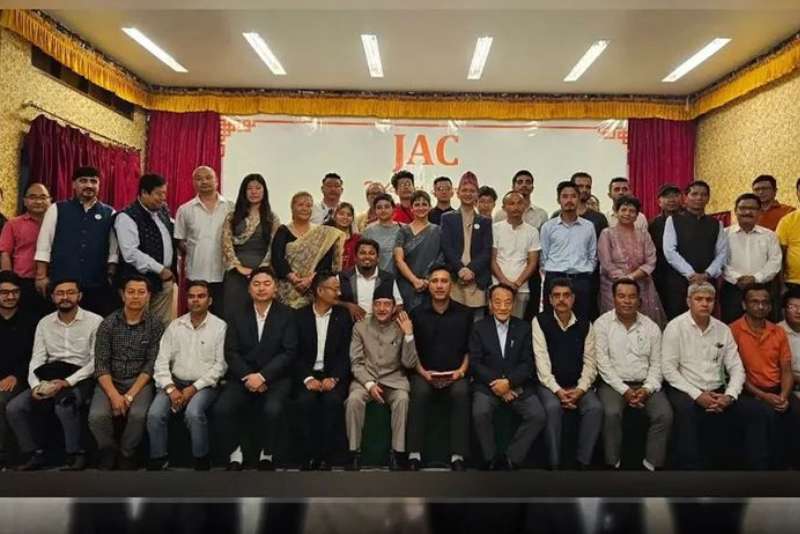
Gangtok: A symposium held on Sunday by the Joint Action Council (JAC) in Gangtok brought together various political parties, organizations, and individuals to discuss the implementation of the Uniform Civil Code (UCC) in Sikkim. Following extensive deliberation, the JAC passed a resolution opposing the UCC, stating that it is “neither necessary nor desirable in the context of Sikkim.”
The resolution takes into consideration Article 371F of the Indian Constitution, as well as the prevailing customary laws of different communities in Sikkim. According to JAC Vice President Passang Sherpa, the existing constitutional provisions grant special protection to the laws imposed before May 16, 1975, encompassing criminal, civil, and customary laws. The JAC aims to preserve the sanctity of these constitutional rights and avoid any disturbance or alteration.
Expressing dissatisfaction with the state government’s silence on the matter, Sherpa criticized its lack of response on previous issues such as the Citizenship Amendment Act, One Nation One Ration Card, and the Finance Bill. Sherpa added that the government’s inaction on the UCC was disappointing. Instead of resorting to protests, the JAC organized the symposium to bring together people from various backgrounds to engage in deliberations.
Regarding the acceptance of the resolution by the Law Commission of India in the absence of a state government endorsement, Sherpa mentioned that the Law Commission has currently solicited suggestions from the general public. The JAC plans to submit the resolution passed during the symposium to the Law Commission, emphasizing that the views of individuals and organizations are welcomed. Sherpa highlighted the need to raise awareness among the people of Sikkim, as many political parties remain uninformed about this significant issue. The JAC, as an umbrella organization for the people of Sikkim, aims to be the voice of the common people and express concerns in the appropriate forums.
The symposium organized by the JAC served as a platform for open discussions and deliberations, allowing participants to express their views on the UCC and its relevance in Sikkim. The decision to reject the UCC reflects the sentiments of the JAC and its constituents, who believe that the implementation of the code is unnecessary and undesirable in the unique context of Sikkim. The resolution will now be presented to the Law Commission of India as part of the ongoing public consultation process on the UCC.
Gangtokian Web Team, 03/07/24

















































